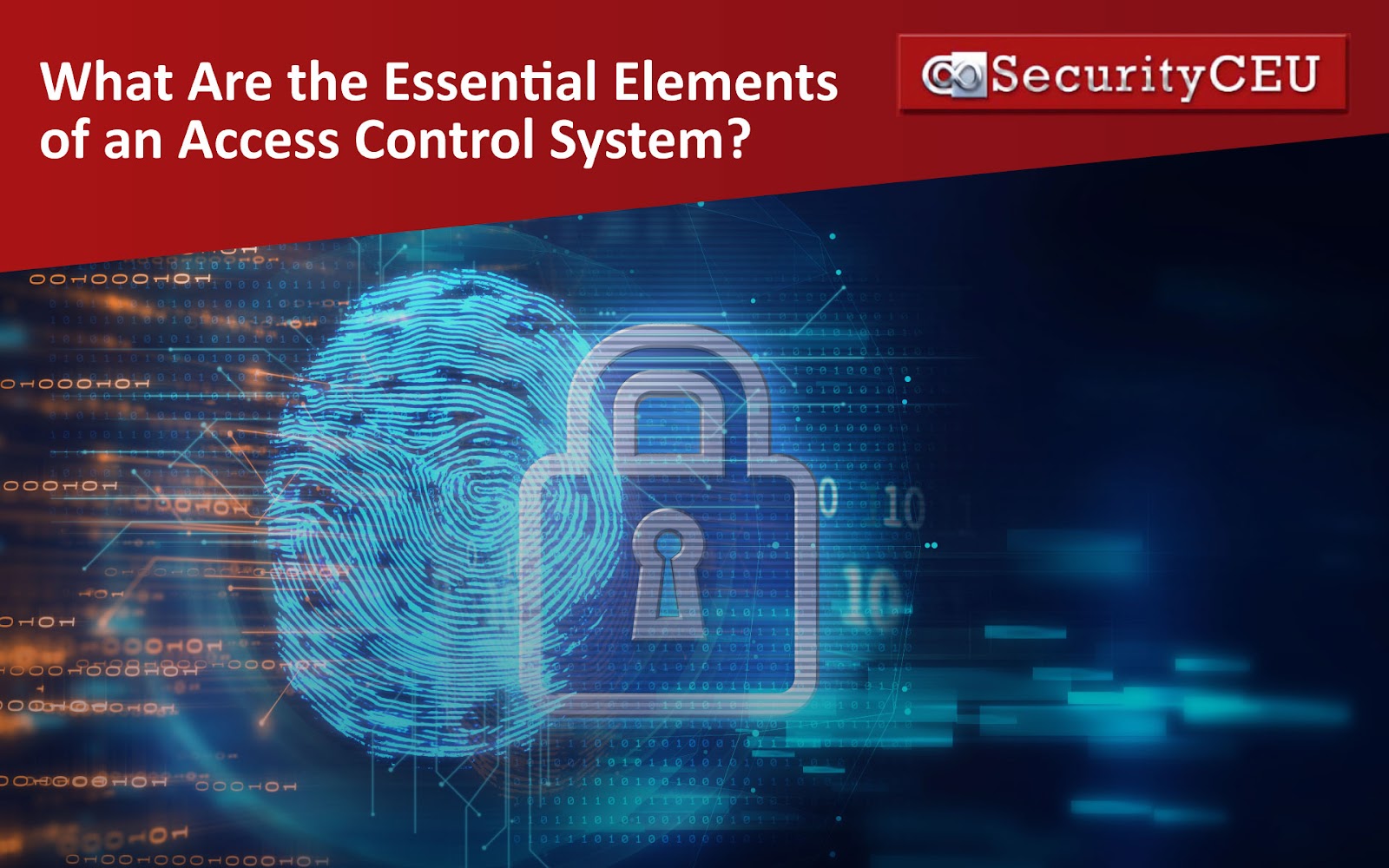What Are the Essential Elements of an Access Control System?

Access control systems provide the foundation for securing physical spaces, ensuring that only authorized individuals can gain entry. To truly understand the importance of an access control system, it's essential to explore its key elements. In this article, we'll delve into the fundamental components of an access control system, highlighting their significance and benefits.
Access Points
Access points are crucial physical locations like doors, gates, or turnstiles that regulate entry and exit within a facility based on predefined criteria. They serve as the initial line of defense in an access control system, ensuring the safety of personnel and assets by preventing unauthorized entry. Effectively managing access points offers several benefits, including enhanced security by controlling access to specific areas, improved operational efficiency by facilitating the movement of authorized individuals, and accurate monitoring and tracking of personnel within the premises.
Credentials
Credentials, such as ID cards, key fobs, or biometric identifiers, play a vital role in verifying the identity and authorization of individuals seeking access to a facility. These credentials, assigned to authorized personnel, must be presented at access points for entry. The importance of credentials lies in providing a reliable method to consistently verify identity and authorization, ensuring that only authorized individuals can access restricted areas. The benefits of credentials include enhanced convenience for authorized personnel with seamless access and reduced reliance on traditional keys susceptible to loss, duplication, or compromise.
Readers
Readers, installed at access points, are devices that interact with credentials to determine their validity. These can be proximity card readers, biometric scanners, or keypad-based entry systems. The importance of readers lies in serving as the interface between access credentials and the access control system, enabling the authentication process and determining access rights. Readers offer several benefits, including enhanced accuracy and reliability in verifying credentials, reducing the risk of unauthorized access. They also provide flexibility to integrate different types of readers to accommodate various credential formats and collect valuable data for auditing and reporting purposes.
Control Panels
Control panels serve as the command centers of an access control system, responsible for processing authentication requests, coordinating with readers, and making access decisions based on predefined rules and access rights. The importance of control panels lies in forming the intelligence hub of an access control system, enabling centralized management and control over access permissions. The benefits of control panels include centralized administration and configuration of access control policies, real-time monitoring and reporting of access events, and integration capabilities with other security systems such as video surveillance or alarms.
Access Control Servers
Access control servers are the backbone of an access control system, responsible for storing and managing access control data, including user profiles, access rights, and event logs. They provide the necessary infrastructure for system administration and control. The importance of access control servers lies in ensuring the integrity, availability, and scalability of the access control system, enabling efficient management and enforcement of access policies. The benefits of access control servers include secure storage and management of access control data, reliable system performance and uptime, and scalability to accommodate growing organizational needs.
Integrations
Integrations are the ability of an access control system to connect and communicate with other security systems or business applications, such as video surveillance, intrusion detection, or HR databases. This integration enhances the overall effectiveness and functionality of the access control system. The importance of integrations lies in maximizing the efficiency and effectiveness of the access control system. The access control system can leverage additional data and functionalities to enhance security, streamline operations, and improve decision-making by connecting with other security systems and business applications. The benefits of integrations include enhanced situational awareness through integration with video surveillance systems for real-time monitoring and recording of access events, improved response capabilities by integrating with intrusion detection systems to trigger alarms or alerts, and streamlined administrative processes by integrating with HR databases to automate the provisioning and de-provisioning of access rights based on employee status changes.
Conclusion
The essential elements of an access control system work together to create a comprehensive and robust security infrastructure. Access points, credentials, readers, control panels, access control servers, and integrations collectively form the backbone of an effective access control system. By understanding each element's definition, importance, and benefits, organizations can make informed decisions when designing, implementing, or upgrading their access control systems.
Today, we have explored how access points act as physical barriers, credentials verify identities, readers authenticate credentials, control panels make access decisions, access control servers manage data, and integrations enhance functionality. By leveraging these essential elements, businesses and organizations can establish a secure environment, protect valuable assets, and ensure the safety of their personnel.
An access control system is not just a collection of components, but a well-integrated solution that provides controlled access, streamlined operations, and actionable insights. By investing in a robust access control system and understanding its essential elements, organizations can proactively address security concerns, meet compliance requirements, and achieve peace of mind knowing that their facilities are protected. Learn more about access control systems with our robust course catalog here.





